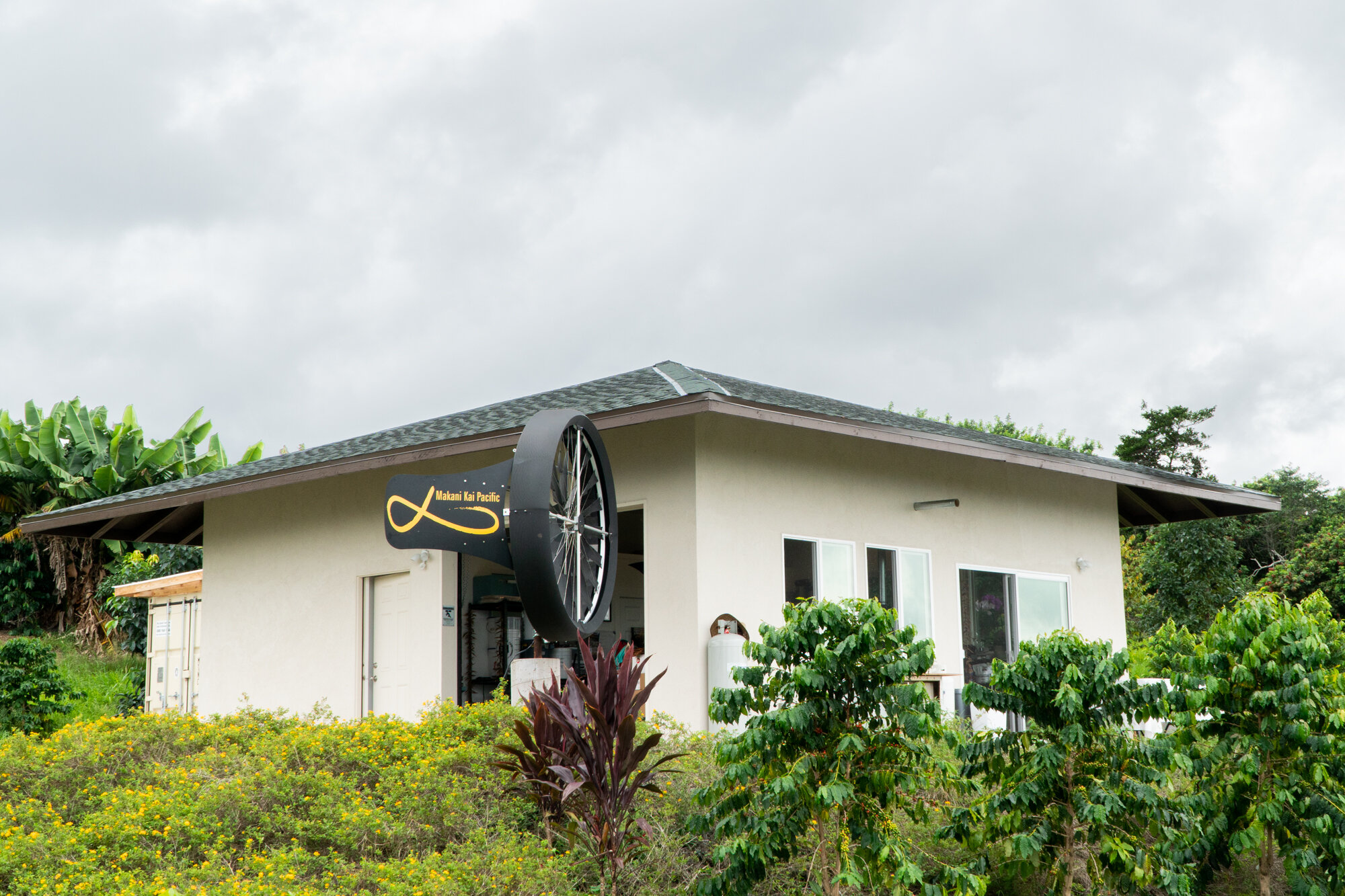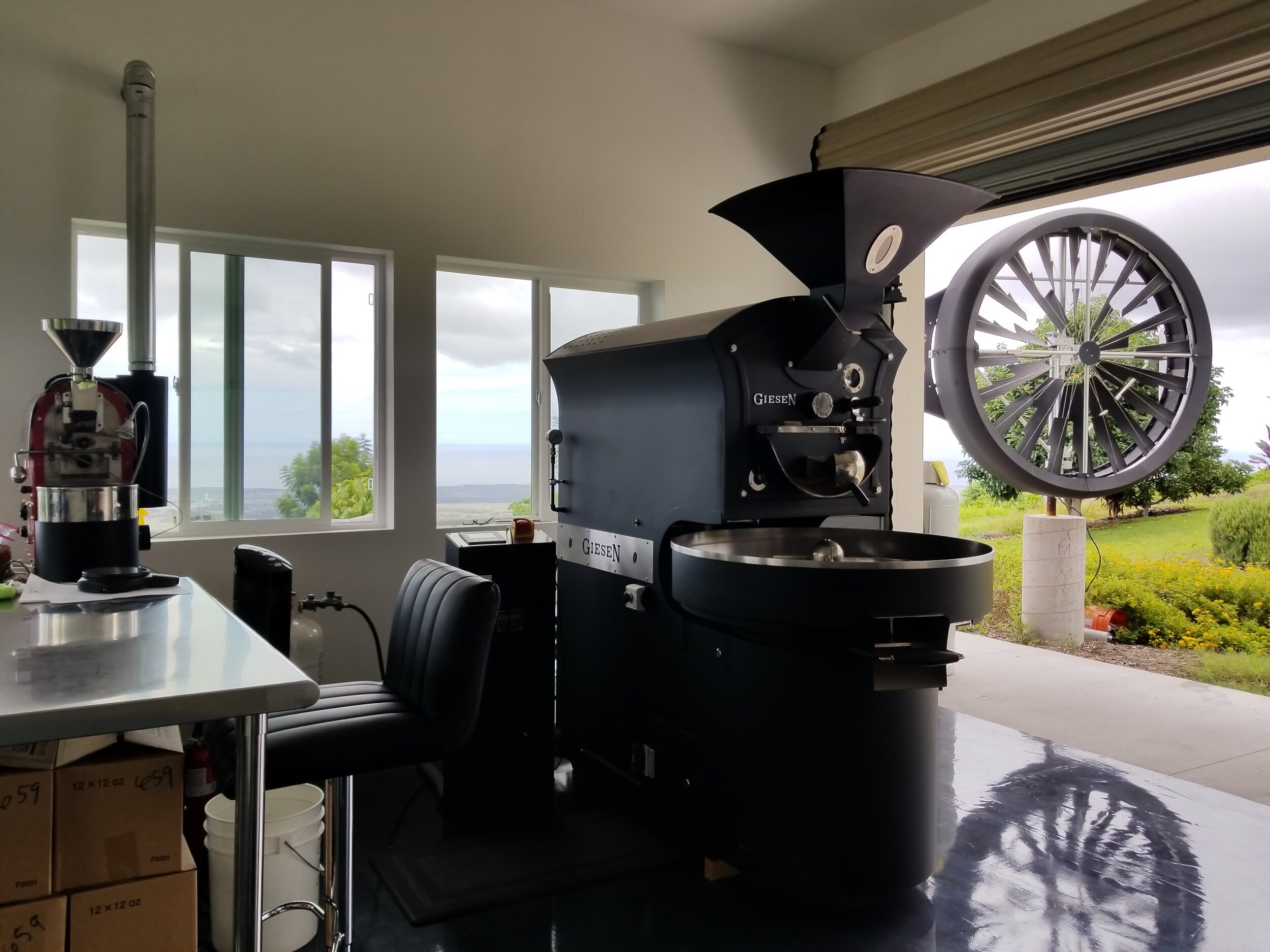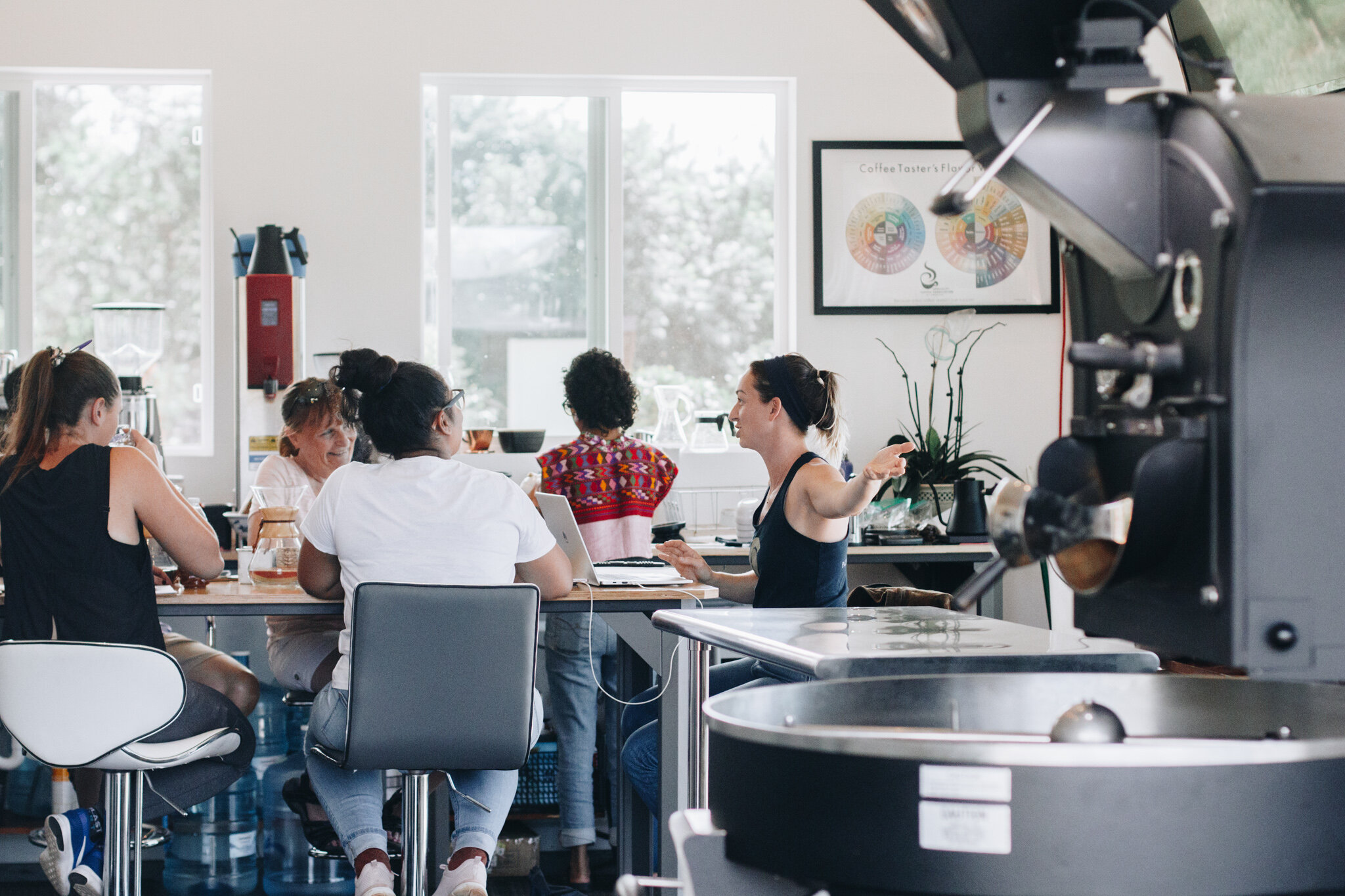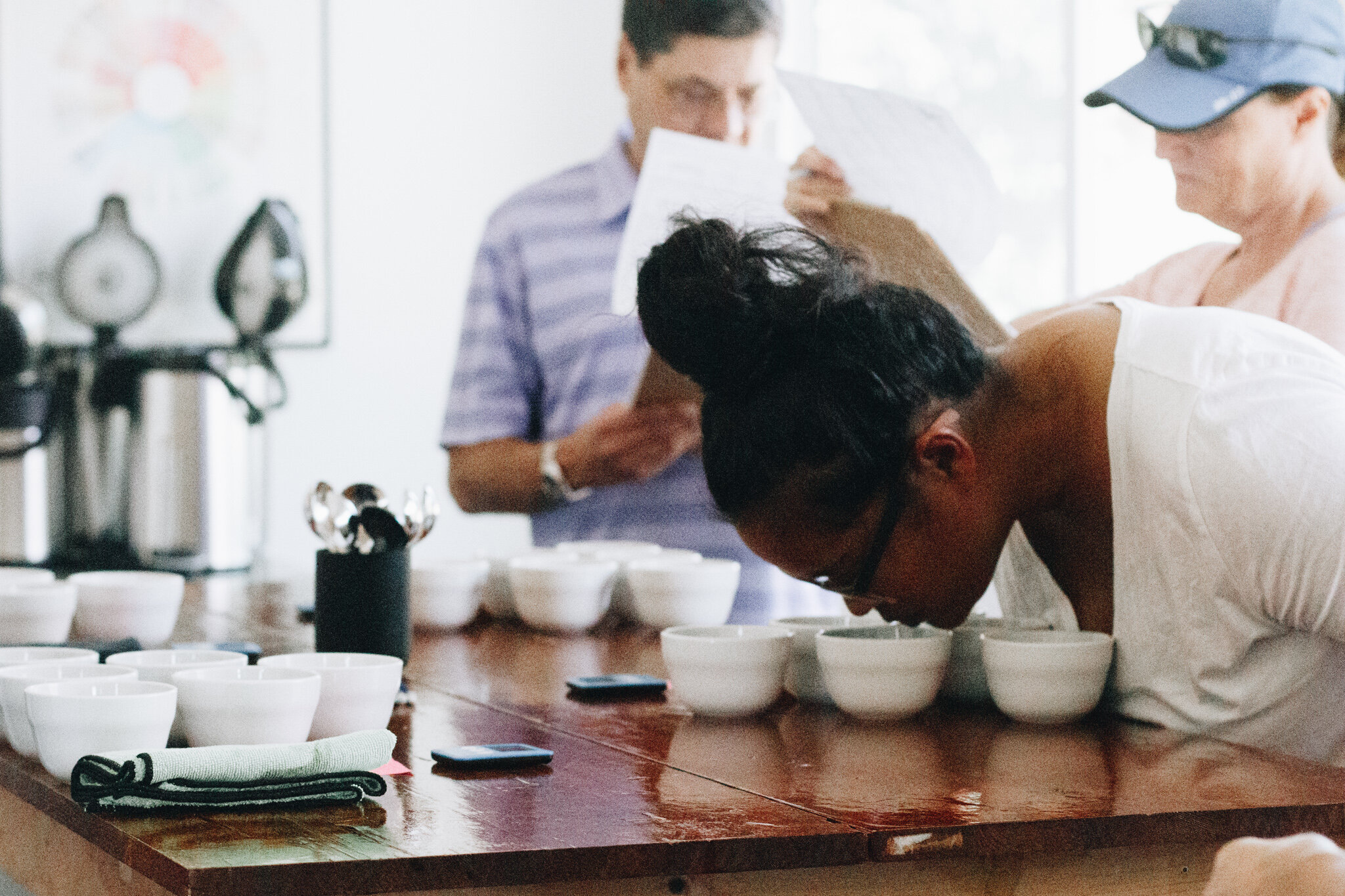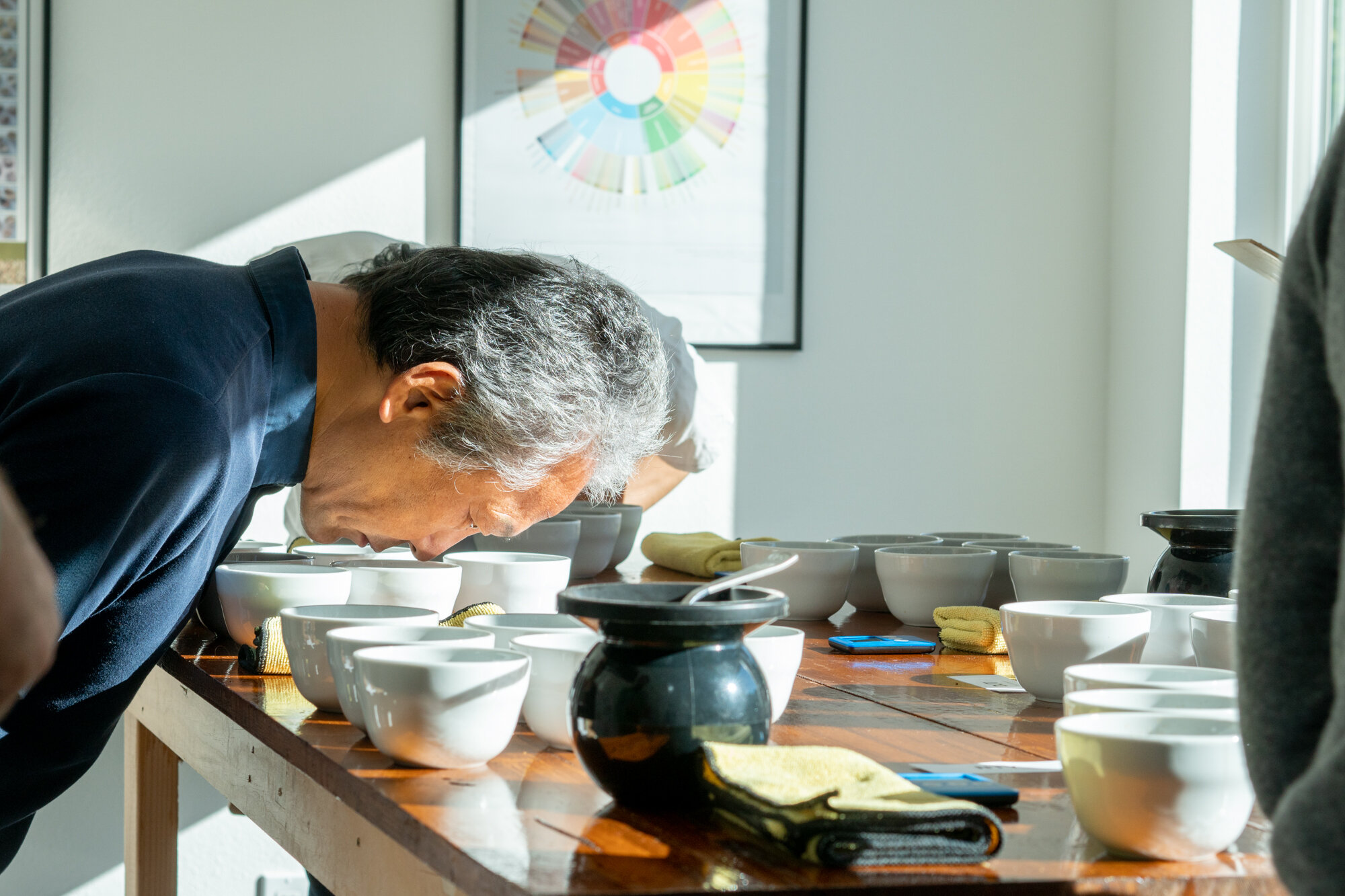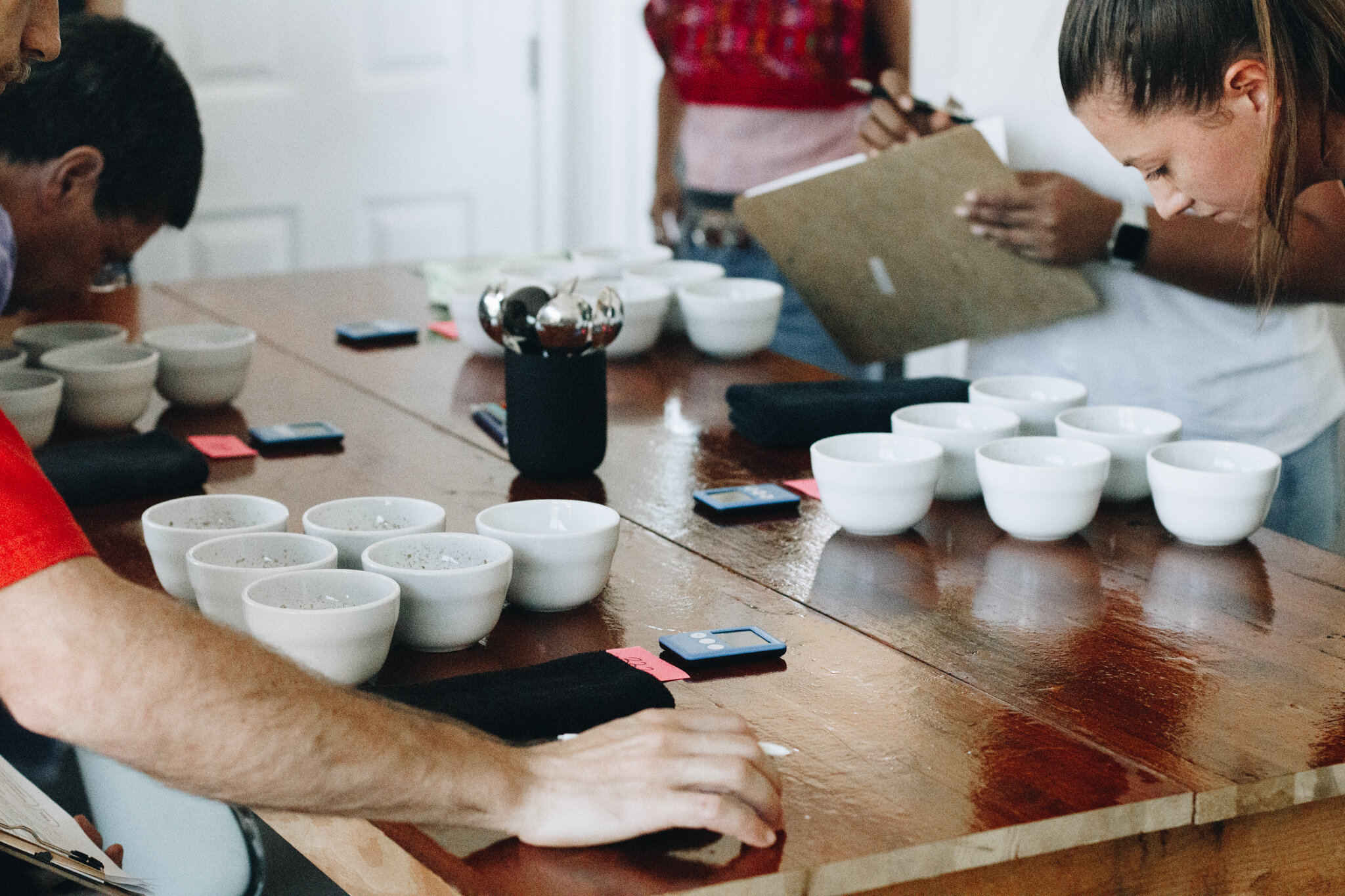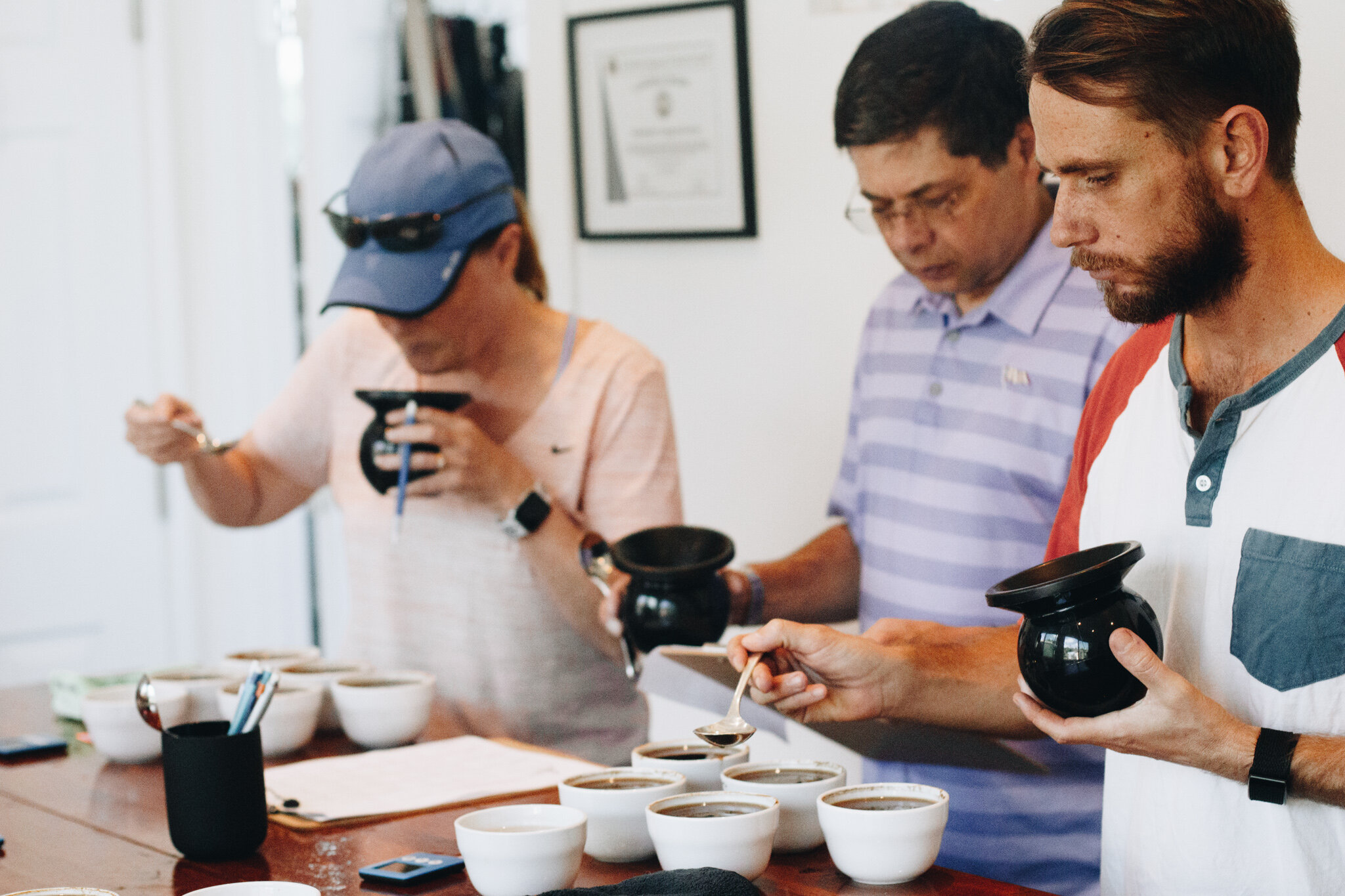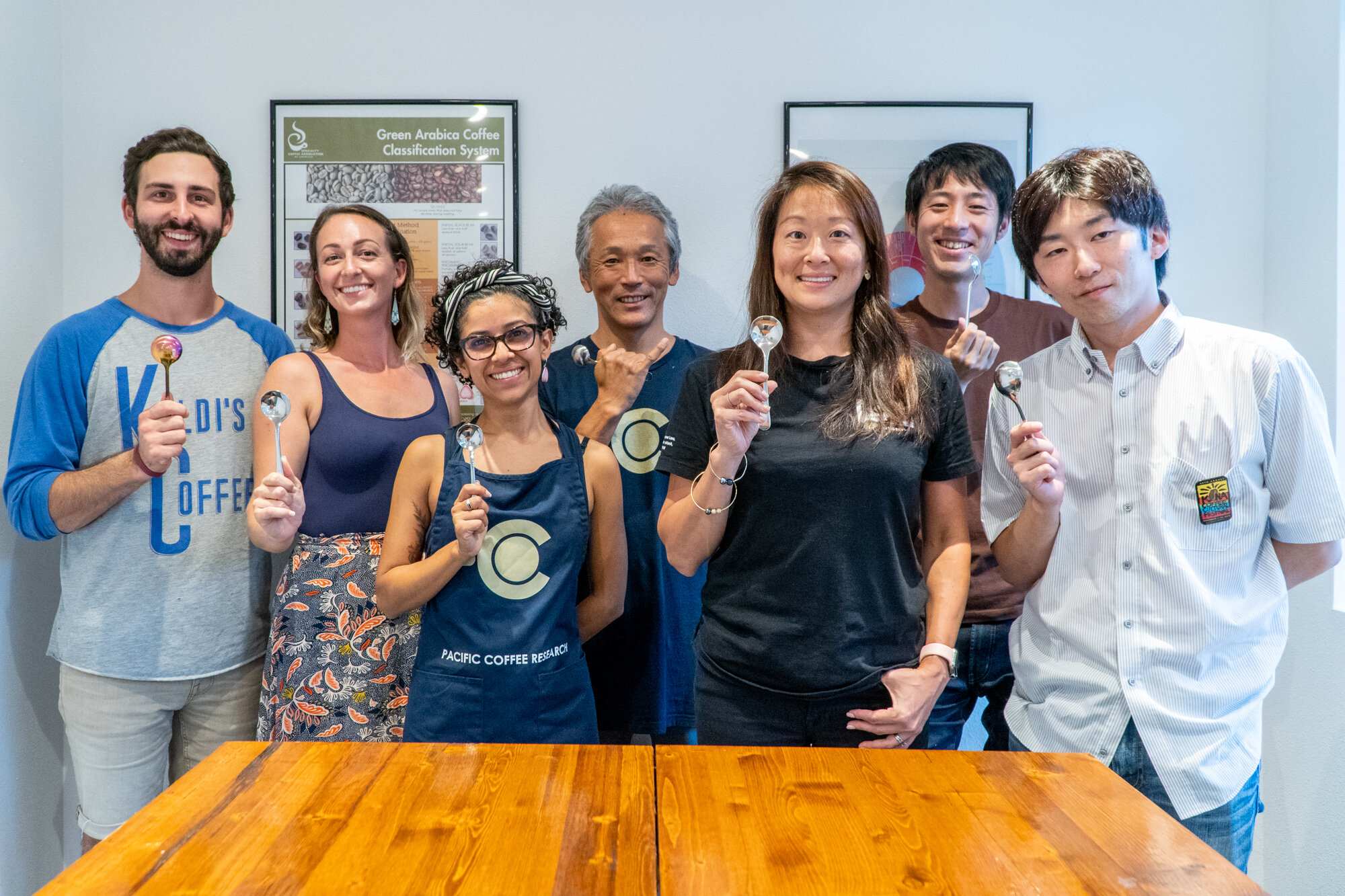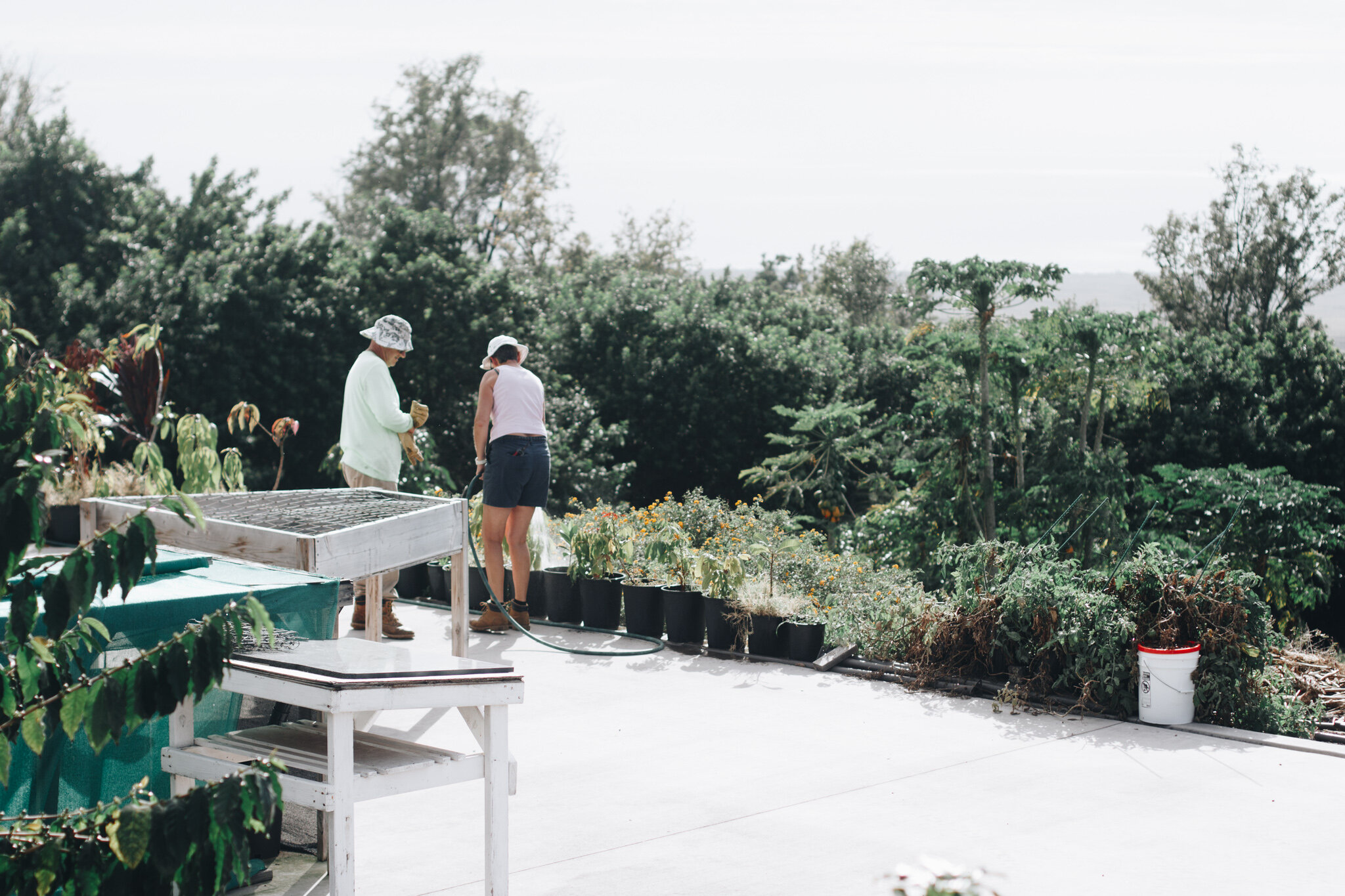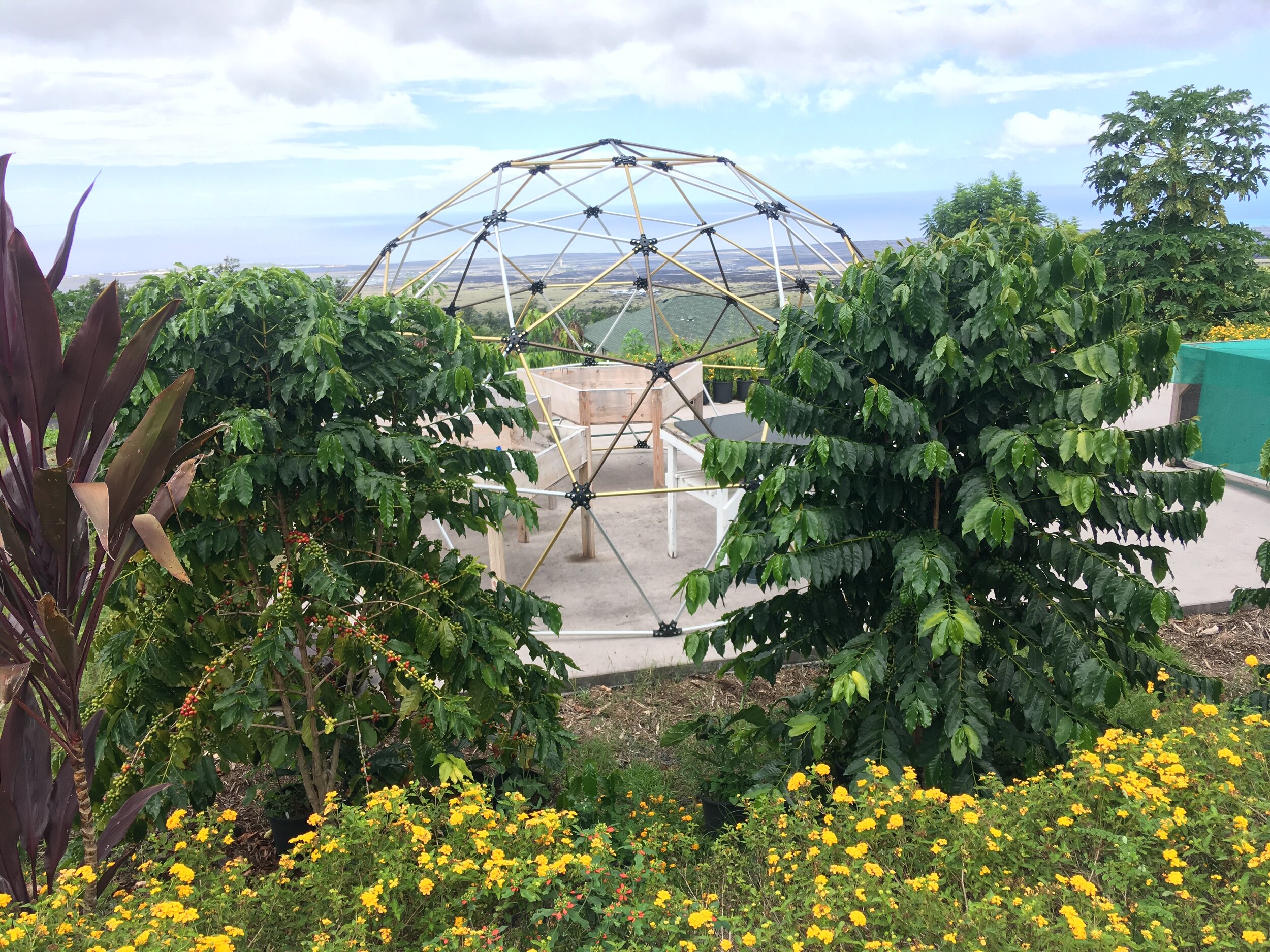Premier Training Campus Spotlight: Pacific Coffee Research
Pacific Coffee Research is a women-owned and operated coffee company and only PTC on Hawai’i Island; achieving its PTC accreditation in November 2017.
Premier Training Campuses (PTC) are Specialty Coffee Association (SCA) member companies or organizations whose facilities have been inspected and certified by the SCA. The program recognizes that these facilities offer an exceptional education setting for coffee education.
This week, BRITTANY HORN, co-owner, co-founder, and Authorized Specialty Coffee Trainer (AST) tells us about Pacific Coffee Research’s Premiere Training Campus located in Kailua Kona, Hawaiʻi Island.
Brittany Horn (left) and Madeleine Longoria Garcia (right) are the co-founders of Pacific Coffee Research.
Located on an active farm that is deeply invested and dedicated to sustainable agricultural practices, Pacific Coffee Research partners grow coffee, ulu, lilikoi, citrus, banana, and much more. For co-founder Brittany Horn, the company’s location offers a different perspective: “It’s so invigorating to be a part of the full production process of coffee and makes for a stellar, and pretty rare, learning experience.”
Pacific Coffee Research offers the SCA’s Coffee Skills Program certification courses, custom workshops, and corporate training events. Pacific Coffee Research provides a unique insight into the Hawaii coffee industry for visitors to the Hawaiian islands, you can explore Hawaii coffee through coffee tasting workshops, coffee farm tours, and agricultural education run by Pacific Coffee Research. “Our goal,” says Brittany, “is to elevate the reputation and awareness of Hawaii-grown coffee to create a stronger alliance with consumers across the globe.”
Lauren Thormodsgard, Production Roaster at Pacific Coffee Research.
In the first few years of working in Hawaii coffee, the team met coffee growers, volunteered in cupping competitions, and worked in cafés, roasteries, and on farms picking and processing coffee. “We had an overview of the industry and we realized that there was an essential set of services that wasn't publicly or, at least, locally available to the community,” explains Brittany. The company’s goal was to offer a full range of support and services providing valuable education and information that engages the coffee community from the supply chain from seed to cup; from post-harvest quality consulting with producers to roasting workshops, barista training, and sensory courses—all to create a viable, stronger, and thriving Hawaii coffee industry. Citing Hawaii's status as both a consuming and a producing community, Brittany explains that it was deeply important to offer courses that benefited both: “We wanted to demonstrate the interconnectedness of each of these components in the industry. So, we set out on a deeply focused journey to get the certifications and requirements to provide several valuable services.”
So why did Pacific Coffee Research decide to become a Premiere Training Campus? Brittany explains, “We saw it as an excellent opportunity to continue the mission to develop a valuable education scene here in Hawaii… this was a means to elevate the quality and reputation of coffees of Hawaii.”
For Brittany and Pacific Coffee Research, the Premiere Training Campus accreditation fosters education, encourages growth, and elevates coffee in the local community: “We love teaching and sharing information and consider ourselves continuous learners as much as we are educators,” explains Brittany. “We love when learners come to us, seeking new experiences or deepening their knowledge. We love having a community space that provides people with opportunities for professional development. And it’s just as amazing when people from around the world visit us and walk away with a deeper awareness of Hawaii agriculture and coffee. Being a Premier Training Campus provides us with many of the tools for continuous learning.”
The Hawaii coffee community includes the entire supply chain and thus creating rare opportunities for working together and meeting up. “The coffee scene ranges a bit from island to island, but what is unique to our coffee community is that it encompasses the entire industry: coffee producers, pickers, processors, large mills, small family operations, roasters, baristas, coffee consumers, and enthusiasts. On some islands, all these coffee professionals live and work within a few miles of each other. In a normal year, we’d have events where these folks are all in the same room with each other—enjoying a latte art throwdown or anticipating the announcement of the year’s cupping competition winners.”
Oʻahu island, home to both the state capital of Honolulu and the largest population, has a robust café scene “with shops featuring coffees from roasters locally situated and around the globe.” Brittany continues: “Kauaʽi and Maui also have multi-roaster cafés with talented baristas and high-end equipment. Both Maui and Kauaʽi are also home to large scale, mechanically harvested coffee farms. In fact, Kauaʽi hosts one of the world’s largest coffee farms with over 4 million coffee trees grown on 3,100 acres of land. “Hawaiʻi Island, Oʻahu and Maui were once home to large scale sugar plantations and in an effort to maintain ag[ricultural] development, land was converted to coffee production. The other islands are relatively rural and while tourism is still the largest revenue stream State-wide, these islands maintain dedication to cultivating the land and growing food.”
When the pandemic hit, Pacific Coffee Research found that it had to get creative and re-prioritize its focus. First, it explored every avenue for support, including webinars and education to grants and loans; they were able to secure funding to maintain staff, which was essential to navigate the rest of the changes it'd need to make. The team brainstormed new revenue streams and outreach opportunities which led them to develop a virtual workshop curriculum. This gave Pacific Coffee Research the chance to continue engaging with students who had already planned to join the in-person courses and workshops in 2020, whilst also expanding its reach into new markets and students who may not have been able to travel to Hawaii. Furthermore, the team developed a series of Instagram live sessions, “Talk Story Series,” where they touched base with the local community and broader specialty coffee network online. During these sessions, conversations were held revolving around topics of current events, adapting to COVID-19, available resources, and mental health. These sessions allowed the team to stay connected with their online community, raise awareness of their virtual workshops, and help them on a personal level.
Pacific Coffee Research has found that opening lines of communication both internally and externally has been essential, alongside continuing to diversify its market, maintaining flexibility and patience, whilst seeking a healthy mind and staying positive. Brittany says, “If nothing else, our team has strengthened in these times.”
With all the challenges and difficulties they faced, how do the team at Pacific Coffee Research keep motivated? “Our motivation comes from the people we get to work with. Bearing witness to their successes and challenges keeps us engaged and learning,” Brittany shares. “We’re also really proud of what we have to offer and what we have accomplished. Resiliency is everything right now. We're also pretty motivated by our surroundings, the beauty of Hawai’i Island: Coffee farms, 'āina, sunshine, and ocean.”
Achieving SCA Campus certification offers global recognition of a company’s dedication to make coffee better. Learn more about how to get your own training facility certified here.
If you want to find a Campus near you, visit our Campus Map.
Photos from Pacific Coffee Research’s Premiere Training Campus in Hawai’i






